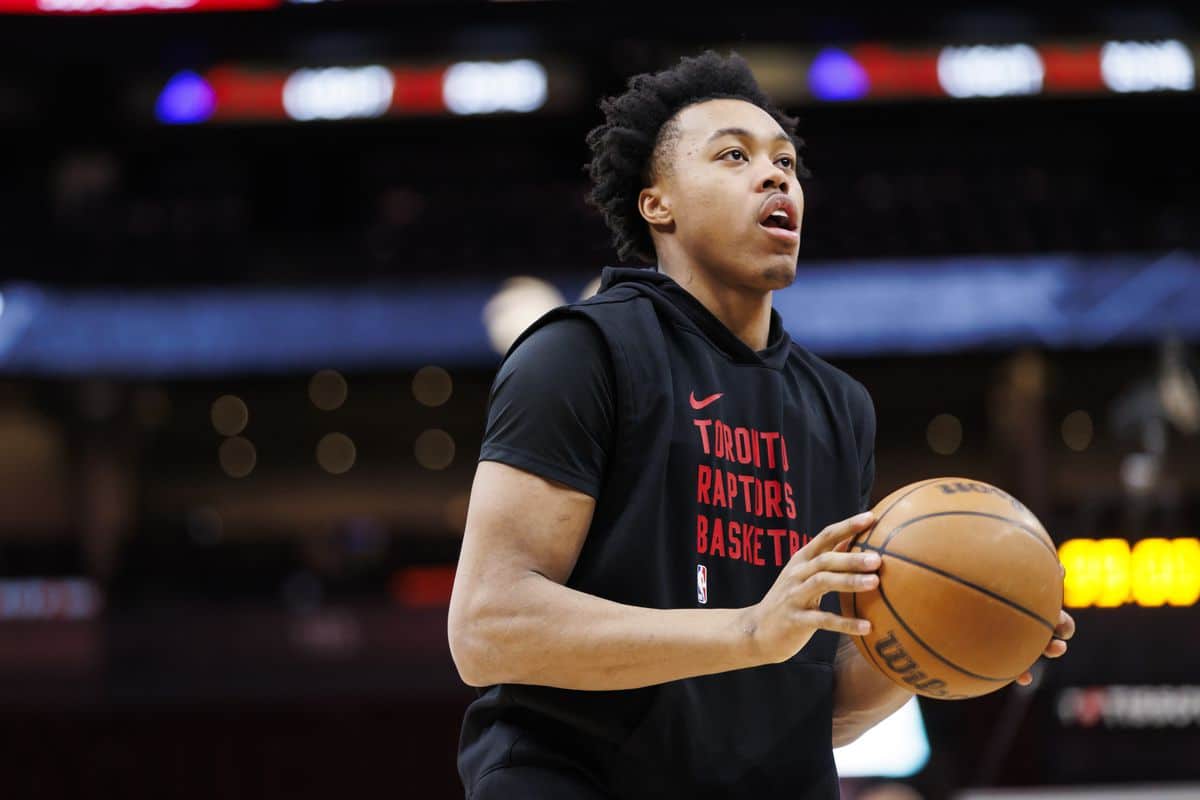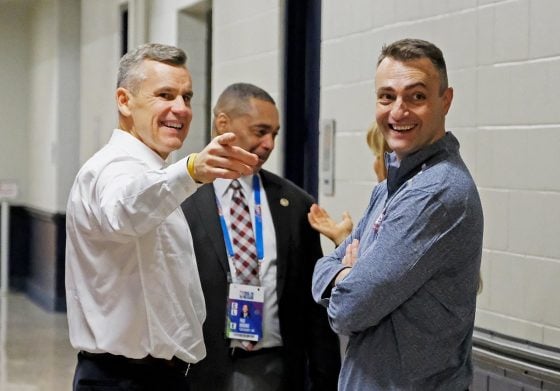With Kristaps Porzingis in town, the Boston Celtics have a new starting center and a third star to pair with their elite wing duo of Jayson Tatum and Jaylen Brown. A consequence of the deal was losing Marcus Smart, who has been the team’s primary playmaker for the past two seasons.
In Smart’s first year as the Celtics’ full-time point guard, the team made a run to the NBA Finals and averaged a career-high 5.9 assists – a number he improved upon this past season, bringing it to 6.3.
And considering Boston’s lack of additional playmaking behind Smart was cited as a primary reason for their loss in the 2022 NBA Finals, losing him will have serious on-court ramifications. Some outlets have even claimed that Boston will be worse because of their decrease in playmaking.
But that’s not fair to Derrick White.
When Boston traded for White at the 2022 deadline, he was initially projected to be a high-level sixth man behind Smart. But as Robert Williams worked on recovering from offseason surgery, White established himself as a regular starter.
And on the nights Smart was out, it became clear that White was more than capable of running the point – from a scoring and playmaking perspective.
Photo by Maddie Malhotra/Getty Images
This realization reached its peak in the middle of February when White took home Eastern Conference Player of the Week honors, averaging 24.5 points, 4.8 rebounds, and 7.5 assists over a four-game slate. Smart did not appear in any of the four games, and Brown missed three of them.
Not only was White able to keep the team afloat, but he took it a step further, carrying them to win after win. And in the game immediately following his Player of the Week stretch, White nearly led a Boston team without Tatum, Brown, Smart, Al Horford, and Robert Williams past a Milwaukee Bucks team missing only Khris Middleton.
White’s ability to mold himself into any situation he’s thrown into should not be used against him when discussing Boston’s playmaking abilities.
When Smart was healthy, White diverted to a spot-up shooter on the offensive end who was also capable of getting into the lane and finishing. His playmaking skills weren’t necessary, as when the ball touched his hands, he was almost always in a position to score.
But when Smart was out, and the Celtics needed a facilitator, he was always ready to embrace that part of his game.
In his 108 games with Boston, White has averaged 3.9 assists. But in the 23 games he’s appeared in without Smart, that number jumped to 5.1 – just 0.8 assists per game behind Smart’s average in his first year as the Celtics’ starting point guard. And since the beginning of February, when White’s playmaking skills really began to shine, he averaged 5.9 assists in 11 games without Smart.
White’s dominance continued in the playoffs, where he played a crucial role in the scoring column as Boston’s stars struggled with inconsistency. He was arguably their best player in the first round, his red-hot shooting tapered off but reappeared in the second, and in the Eastern Conference finals, White may have been the most consistent player (all leading up to his Game 6 heroics).
His comfortability with his teammates has grown tenfold since he joined the Celtics, and becoming the full-time point guard is the next step in White’s development in Boston.
And if White’s stellar play to end the year, which likely made Brad Stevens more content with trading Smart, isn’t enough to sway doubters, just take a look at his final 49 games with the San Antonio Spurs.
Before getting traded to Boston in the 2021-22 season, White played 49 games with the Spurs. And while he was still playing alongside Dejounte Murray, who acted as the primary point guard, White enjoyed a playmaking boom.
He averaged 5.6 assists per game in 30.3 minutes of action per night – both of which would be career-high marks. But what’s perhaps most impressive when inspecting this stretch is that he did it on a Spurs team that went 41-41.
In those 49 games, White averaged 9.8 potential assists per game, and he was still acting as the secondary playmaker behind Murray. For reference, Smart averaged 10.7 potential assists per game this season as the primary playmaker in Boston.
Smart’s absence in the Celtics lineup will undoubtedly be felt. His leadership, hustle, and off-the-court presence cannot be replaced. But to say the Celtics are going to be without playmaking blatantly disregards White’s history as a facilitator.
Just because he’s never been put in a position to be a team’s lead passer doesn’t mean he can’t be. Based on the evidence, White is ready to tackle that challenge.





